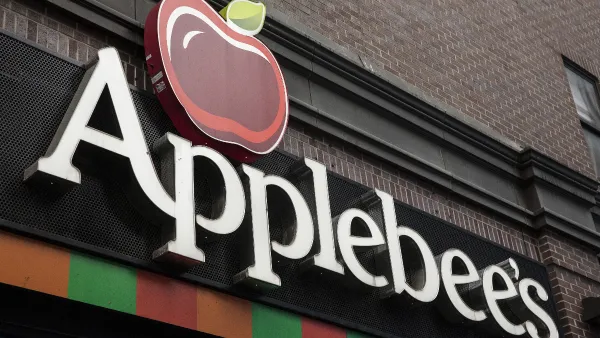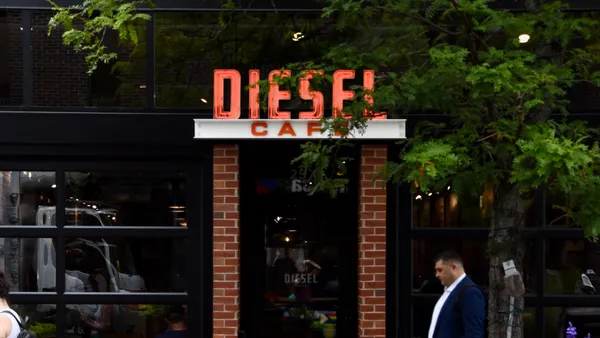Dive Brief:
- Four months after parent company Elite Restaurant Group acquired New York-based Noon Mediterranean in a bankruptcy deal, Daphne's will begin opening hybrid Daphne's Mediterranean concepts in February, according to Nation's Restaurant News.
- Two Daphne's Mediterranean units will open in February in Dallas, and 11 Noon conversions in total are expected to take place in Texas and Massachusetts by April.
- The hybrid stores in Dallas will feature Daphne's menu with Noon's build-your-own bowl assembly line setup.
Dive Insight:
If there is a reason for Daphne's Mediterranean operators to optimistic, it's in the fact that Mediterranean cuisine is in high demand right now. According to Mintel's 2018 U.S. Flavor Trends report, Middle Eastern cuisine on U.S. menus increased 32% from 2015 to 2017. The hybrid concept, and its bowls in particular, should also fulfill the growing demand for customized meals. This trend is driven by younger consumers who want to build something different every time they visit a restaurant, according to a report from Packaged Facts.
That's not to say the launch and expansion will be easy, however. Because of these demands, the Mediterranean category is intensifying and even consolidating. For example, the Hummus & Pita Co. just inked a 100-unit expansion deal, while Rōti Modern Mediterranean secured a $23 million investment last year, and Cava's recent acquisition of Zoe's Kitchen created a nearly 330-unit national footprint.
These new hybrid Daphne's locations will not include any Noon branding, which is perhaps not a bad thing considering the state of the chain when it was acquired by Daphne's late last year. Heavy debt forced the company to close seven locations and lay off nearly 90 employees prior to its Chapter 11 filing in August.
The company stumbled when it rebranded too quickly (VertsKebap to Verts Mediterranean Grill to Noon), dropped popular menu items (CEO Stefan Boyd told Restaurant Business the company didn't do a good job listening to customers) and took on too much debt too fast in a bid to aggressively expand. The menu decision on its own may illustrate why the concept went from a 28.3% increase in sales from 2015 to 2016, to an 8.8% decline the following year.
But these challenges don't diminish the popularity and promise of the brand. Just last year, for example, Restaurant Hospitality recognized Noon Mediterranean as one of 12 Mediterranean concepts to grow. The year prior, CNBC named it as one of the 10 restaurant brands to watch, while in 2015, Noon secured $20 million in private funding.
The hybrid approach could bring back some of that spark. The Mediterranean-focused menus from both brands complement each other, so it shouldn't be a disconnect for fans of either. Daphne's will continue to serve gyro and falafel, as well as Noon's signature bowls. Eater reports that mezze platters and loaded fries also will be on the menu.
Unlike co-branded locations that share real estate but maintain separate menus (for example, Fatburger and Buffalo's Express) or co-branded menu item crossovers (Baskin-Robbin's Dunkin' Donuts Coffee 'N Donut ice cream flavor) this type of hybrid seems a bit unusual in the space. An Applebee's franchisee opened an Applebee's-IHOP hybrid in June, with signature offerings from both brands, but the company noted that it wouldn't be common. The franchisee told Restaurant Business that such an approach would enable the restaurant to serve diverse clientele throughout the day. But such an expanded, diversified menu also could add a layer of complexity to the restaurant's operations. But by combining the strengths from both Daphnes and Noon, Daphne's Mediterranean has a chance to compete so long as the company avoids mistakes from the past.













